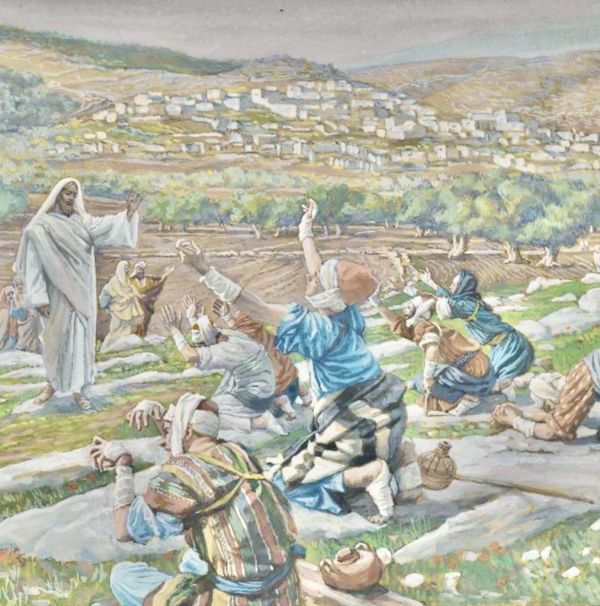Luke recounts the healing of ten lepers and the gratitude of one of them for his restored health, recognising God in the Lord Jesus.
St Francis 'the Minor' poured out on everyone the gratitude he received from Christ.
A man of indomitable faith, he embraced those marginalised, going beyond all judgement and stereotypical thinking.
In the Sources, the episode that makes him the guardian of the marginalised is one of extraordinary beauty and special humanity.
We read: "One day, while riding his horse across the plain that stretches out at the foot of Assisi, he came across a leper.
That unexpected encounter filled him with horror.
But, thinking and reflecting that if he wanted to become a knight of Christ, he had to first overcome himself, he dismounted and ran to embrace the leper, and while the latter stretched out his hand as if to receive alms, he gave him money and kissed him.
He immediately remounted his horse, but no matter how he looked around, and even though the countryside stretched out freely all around him, he could no longer see the leper anywhere.
Therefore, filled with wonder and joy, he began to sing devoutly the praises of the Lord" (Sources 1034).
From then on, he was imbued with the spirit of poverty, an intimate feeling of humility and profound piety.
Whereas before he abhorred not only the company of lepers, but even seeing them from afar, now, because of Christ crucified who, according to the words of the prophet, took on the despicable appearance of a leper, he served them with humility and kindness [...]
He often visited the homes of lepers; he gave them alms generously and, with great compassion and affection, kissed their hands and faces" (Sources 1036).
In the Unconfirmed Rule, an eminent guide for his friars, we read:
"And they should be happy when they live among people of little importance and despised, among the poor and weak, among the sick and lepers, and among beggars along the road [...]" (Sources 30).
Since authentic courage knows no time limits, in Celano's First Life, we read the following in relation to his last period of life:
"Therefore, he ardently desired to return to the humble origins of his evangelical life journey and, rejoicing in a new experience of the immensity of love, he planned to bring his exhausted body back to the primitive obedience of the spirit [...]
He said: «Let us begin, brethren, to serve the Lord God, for so far we have made little or no profit!».
[...] He wanted to return to the service of lepers and be reviled, as he had been in the past" (Sources 500).
Francis, being the great soul that he was, understood that in every leper there was the supreme presence of Christ.
«Getting up, go; your Faith has saved you» (Lk 17:19)
Sunday 28th in O.T. year C (Lk 17:11-19)












